NEWS
10.03.2022
At First I thought, "Is This a Prank?" | Hiroki Takahashi's Life-Changing Mystical Adventure!
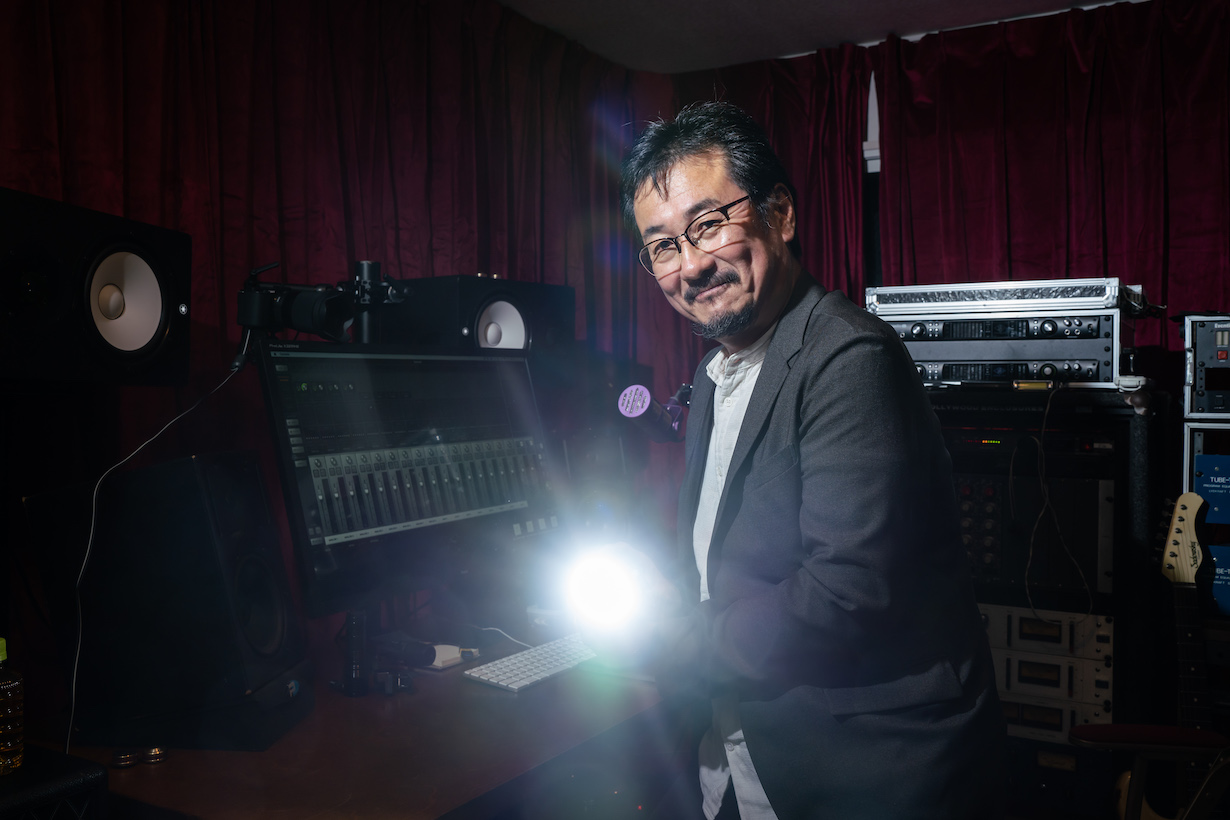
When the Dragon Ball TV anime started airing in February of 1986, its very first opening theme was a song called "Makafushigi Adventure!" (Mystical Adventure). As the series grew in popularity, this song went on to represent the series as a whole to fans all around the world.
"Tsukamou ze! Dragon Ball!"
At the time of its original broadcast, countless fans would be waiting in front of their TVs every week for the moment when a blazing sun would appear on their screens accompanied by the opening fanfare of Makafushigi Adventure, signifying the start of a new episode of Dragon Ball.
It might be hard to believe, but the voice behind the song, Hiroki Takahashi, was only 20 years old at the time of its recording, and he has now celebrated his 35th year in the music industry as of 2021. Early in his musical career as a young man, he dreamt of debuting as the lead singer of a rock band, but according to Takahashi himself, singing Makafushigi Adventure for Dragon Ball sent him on quite a different path.
How did he come to be the singer of Makafushigi Adventure? What did he think of it at the time? And how does he feel now as he continues to perform it for fans all around the world to this day?
*Interview was conducted while abiding by novel coronavirus prevention measures.
Profile
Interviewee: Hiroki Takahashi
Born in 1965. Made his smash-hit musical debut with the 1986 theme song of the Dragon Ball TV anime, "Makafushigi Adventure!". Also contributed to Dragon Ball's music with the songs "Dragon Ball Densetsu", "Mezase Tenkaichi", and "Aoki Tabibitotachi". Afterward, became the vocalist for the rock band "COME ON BABY" and also went on to write and compose songs spanning several genres. Went on hiatus from the music scene from 1994 and re-emerged in 2004. Has performed at a great many anime song concerts held in Europe, America, and other regions of the world, including "Dragon Ball Symphonic Adventure". His favorite Dragon Ball character is Taopaipai—"The scenes where he's using a pillar to fly around are just so cool."
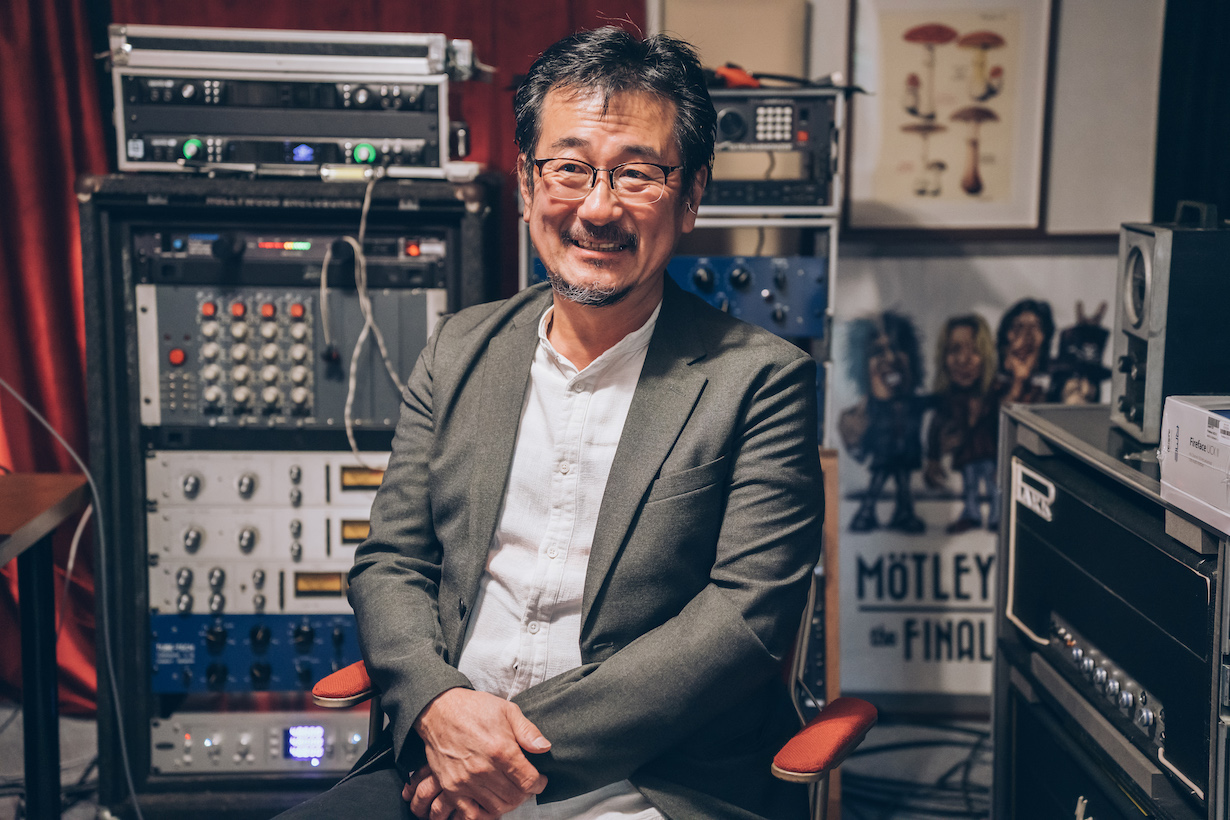
Interviewer: Shinsuke Tada
A freelance writer born in 1983. The youngest of four children, he has been watching Dragon Ball as far back as he can remember thanks to the influence of his older brothers, making sure to catch the latest episode every week on TV. His favorite characters are the Saibaimen.
How a Fresh-Faced Rocker from North-East Tokyo Recorded Amidst a Sea of Cameras
——I was shocked when I heard you were only 20 years old when you debuted with Makafushigi Adventure. I thought, "How can someone so young sing like that?
Takahashi: I was a total amateur back then. Makafushigi Adventure was the first song I'd ever recorded.
——So how did you go from being an unknown amateur to singing Makafushigi Adventure?
Takahashi: Well, the year before my debut, me and my band at the time won a prize at a competition called the YOKOHAMA HIGH SCHOOL HOT WAVE FESTIVAL*. That's where people from the label came and talked to us and we ended up signing with them.
The contest was being broadcast on Fuji TV, and I heard about this later, but right around that time, auditions were being held to find a singer for Makafushigi Adventure. They were having trouble finding someone, so the agency I'd signed on with reached out to them with my materials, and apparently, they thought I was the right guy for the job.
*A high school band contest run by high school students in Yokohama from 1981 to 1998. Also referred to as "the Koshien of music", with "Koshien" being a famous baseball stadium in Japan where the national high school baseball tournaments are held.
——I see! So you stood out to them as the perfect singer for this song they'd written. That must've created a lot of pressure for you when it came time to step into the recording booth.
Takahashi: It did, indeed. It wasn't just staff from the studio and the label, Nippon Colombia, either—a whole crowd of people from the anime's production side were there too.
I was also surprised by how many people from the media were there. A super-popular manga from Weekly Shonen Jump was being made into an anime, after all, so there were a lot of reporters.
Until then, I was just a kid working part-time at a grocer who wanted to sing rock and roll. Being so new to professional music, I'd be lying if I said I wasn't nervous walking into that studio surrounded by a sea of flashing cameras.
At the time I put up a bit of a front and told myself, "Who cares about all that?" and just gave it my all for the recording. It was probably thanks to me being too inexperienced to grasp the kind of position I was in that I was able to pull it off. I didn't have anything to lose, after all.
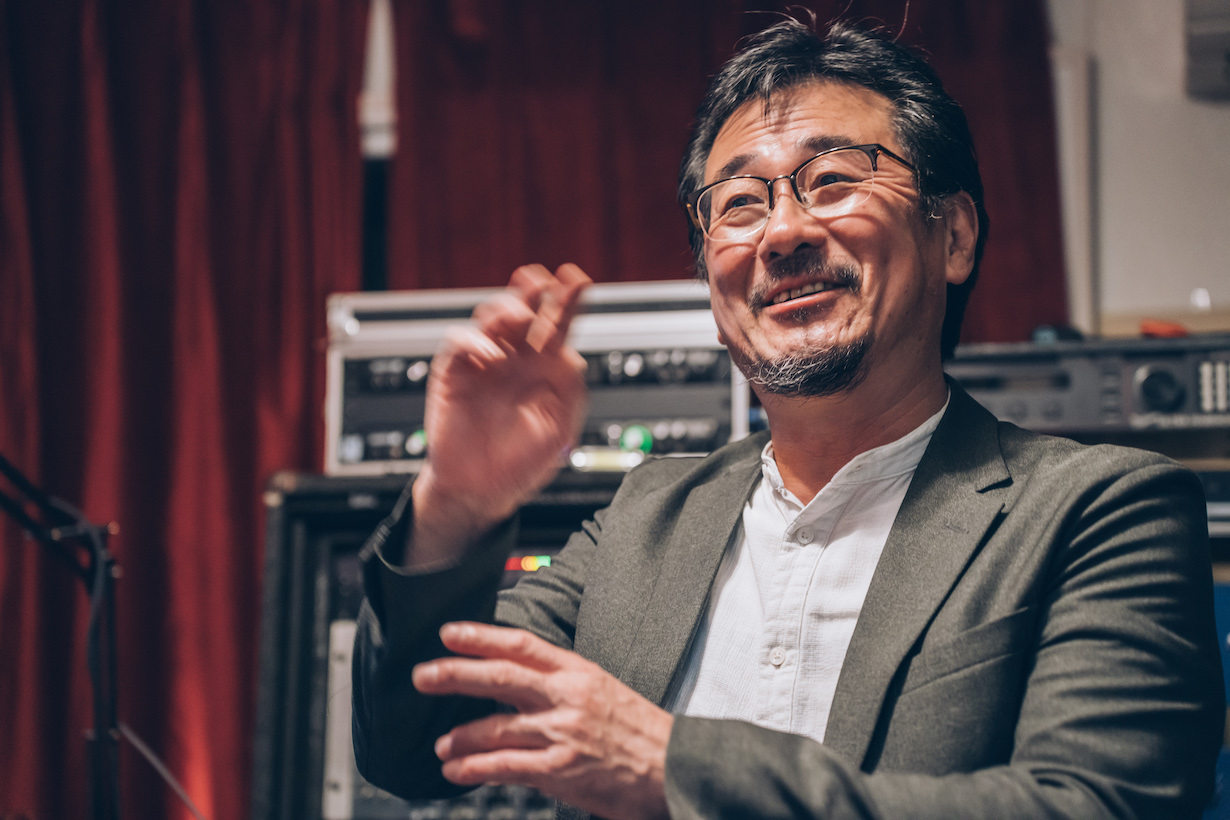
"Is This a Prank?" The Uncertain Period Leading Up to Episode 1 of the Anime
——How did things change for you after that first recording?
Takahashi: Honestly, not much at all.
I was actually quite skeptical about the whole thing up until the first episode aired. I was thinking stuff like, "Am I really singing the theme song for Dragon Ball?" and "Is this a prank or something?" Even though, when you think about it, who on Earth would orchestrate a prank like that on some unknown kid? (laughs)
Because of all that uncertainty, I remember the day of the first episode quite vividly. Wednesday, February 26, 1986.
Across the street from the grocer I was part-timing at, there was a yakitori place with one of those old 14-inch cathode-ray TVs with the dials you had to twist around and everything. It was getting close to 7pm and my shift was almost done, so I said to the manager, "Do you mind if I go? They're gonna play my song on TV," then rushed across the street to the yakitori joint.
And then it happened. The song that I'd sung and recorded, Makafushigi Adventure, was playing in the background of the anime's opening sequence.
It was such a relief, like, "Whew, so it was real after all."
I was telling the woman who ran the shop, "This is my song! I'm singing that!" but of course she just told me to quit screwing around. (laughs)
——You'd be hard-pressed to believe that the guy from the grocery store across the street was singing an anime theme song on TV. (laughs)
Did the people around you start to treat you differently after that?
Takahashi: Not at all, surprisingly, and I rarely heard anyone else singing Makafushigi Adventure either. After my debut, I got my own place in Yokohama near the agency and just continued living as a lone, struggling band man trying to make it, so I didn't feel much of a change at all.
There is one thing I remember, though. It was summer, and I'd thrown all my windows open because it was so hot, and by chance I heard some kids singing Makafushigi Adventure outside. It was a really touching moment.
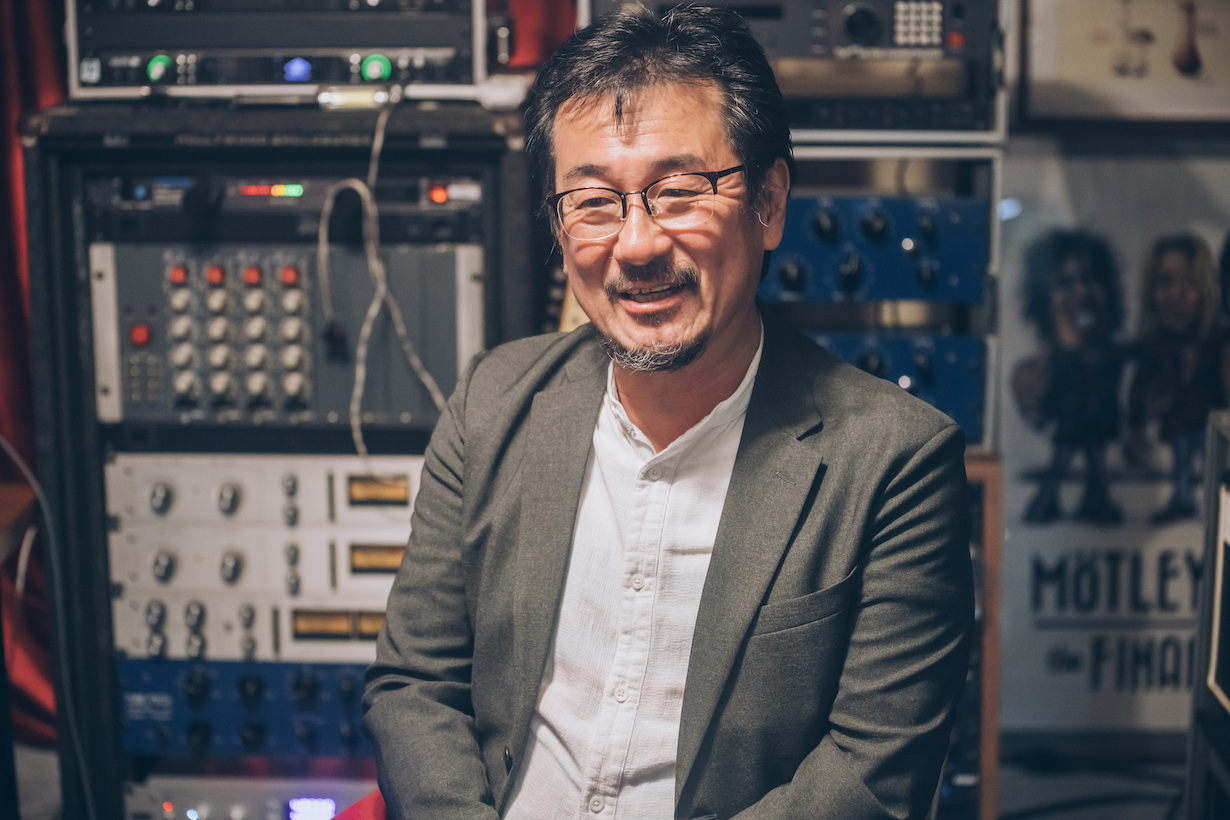
The Rock 'n Roll Elements in Makafushigi Adventure
——I'd like to hear more about your musical roots.
Takahashi: I was first drawn to music by heavy metal back in my teens. It was during the NWOBHM (New Wave of British Heavy Metal) movement in the 70s, and I got really into Iron Maiden, started listening to Whitesnake, and from there went backwards to older bands like Bad Company and Free. In the 80s, the hair metal wave came to Japan with bands like RATT, Bon Jovi, and Guns N' Roses, and I started following them too.
I've always loved western hard rock and that kind of music. I still don't really listen to much music where the guitars aren't distorted.
——So you're really a rock guy through and through!
When it comes to singing an anime theme song, you're singing much more for the general public compared to singing rock and roll.
How did you feel about that at the time of Makafushigi Adventure?
Takahashi: I can't say that I didn't feel some amount of trepidation.
Until then, I'd been writing songs with the goal in mind of becoming a rock star, and I was part of a band too, so at first the idea of an anime song felt like a far cry from what I'd set out to accomplish.
Still, I was thrilled and very grateful that I'd been given such an incredible and rare chance. I gained a lot of confidence by singing the Dragon Ball theme song, and even after it was said and done and I was back in a band, people would recognize me for it. I certainly don't harbor any regrets about it or anything like that.
——Was there a point in the recording process when your concerns about singing an anime song started to subside?
Takahashi: Well, the song itself is just so cool. There are many synthesized elements involved in its composition and instrumentation, but I've always felt that the melody and rhythm are actually very rock-like.
——In what ways does Makafushigi Adventure sound like rock to you?
Takahashi: There are a few points.
For starters, there's the bit at the start where I say, "Tsukamou ze!" Initially I was singing it like "Tsu ka mo u ze" in short, separate bursts, but the composer, Keshi Iketa, who was there at the time of the recording, told me to link the syllables together more smoothly, but also to make sure I enunciate it all properly and not smoosh them together. Let's just say it took more than a few tries to get it right.
Then, at the end of the verse where I sing, "Kumo no mashin de kyou mo tobu no sa!" and go up in pitch, I try to channel my rock style and push it up without stopping the note.
The part I like the most, personally, is in the chorus where I'm shouting, "Let's try, try, try!" Singing up high with that natural grit and distortion in your voice is something that I've always loved about the rock singers I followed growing up.
Fans Around the World Shouting in Japanese with Goku
——These days, Makafushigi Adventure is a song that's loved not only in Japan, but by fans all over the world. You've even performed it in countries like France and Spain with an orchestra for the "Dragon Ball Symphonic Adventure"* event, right?
Takahashi: It was like a dream for me to be singing with a whole orchestra providing the music. Back when I'd get interviewed and asked questions like, "What do you want to accomplish as a singer?" I'd always answer, "I want to try singing in front of an orchestra."
And when we actually performed, the audiences received it even better than I'd expected.
For the Symphonic Adventure shows, there was a roughly 70-member full orchestra, and behind them there'd be a huge screen showing scenes from the anime in time with the music. When a famous scene came up on the screen, the audience would really go wild.
*A concert event where singers perform their Dragon Ball songs from throughout the series in front of a live orchestra. It's been held in Europe, America, and other regions around the world, and is planned to be held in the UK next.
——Which scene do overseas fans seem to love the most?
Takahashi: The scene from Dragon Ball Z where Goku transforms into a Super Saiyan for the first time after Frieza kills Krillin. When that scene comes up, even French and Spanish fans are yelling "Yamero!!" in Japanese together with Goku.
We play the "shwa shwa shwa" Super Saiyan sound effect at the concerts and everything too. I can't even put into words how excited the audience gets.
——You can really tell how passionate Dragon Ball fans around the world are! What do you think it is about Dragon Ball that allows it to resonate with people outside of Japan?
Takahashi: Dragon Ball just has something for everyone, regardless of nationality or age. It's a Japanese series, but it's not like the content is something that only Japanese people can understand or appreciate, and people from any generation can enjoy it. I think that's why people around the world love Dragon Ball.
Personally, I think that along with the story, the battle scenes are also what draw in the international audience. The battles and all the universal elements that go alongside them in any arc of the series, such as friendship, courage, and rising to a challenge, are portrayed so well in Dragon Ball, so it really connects with people and gets them fired up.
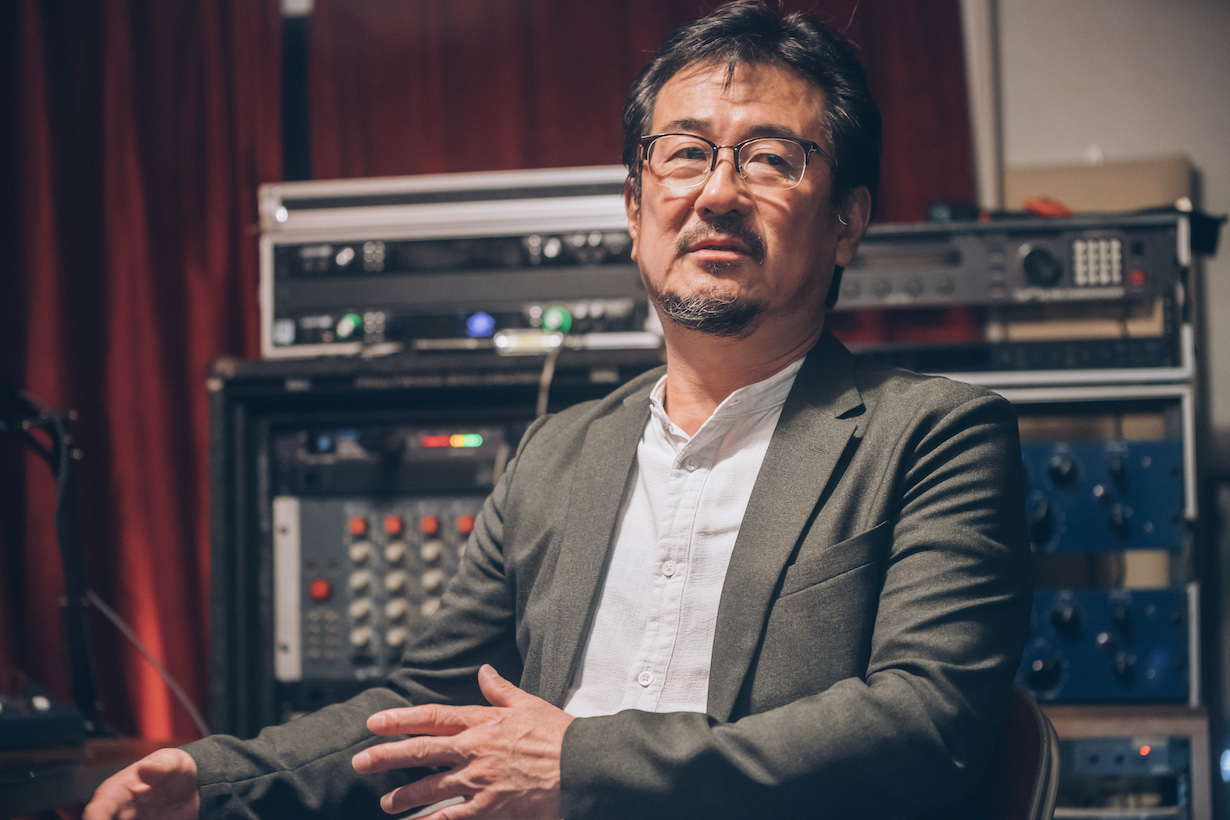
I'm Not Young Anymore, But I Want to Keep Singing the Same Way
——You've released a couple of remix versions of Makafushigi Adventure since its initial release in 1986. Do you have a favorite?
Takahashi: It's funny, I half feel like Makafushigi Adventure is my song, and at the same time that it isn't—that it belongs to the production staff, if you know what I mean.
So when I hear about remixes being made, it's not like it's entirely my own work being remixed anyway, and I don't give any particular directions about how my voice gets used. I'm happy to have them use my voice however they need to.
——You also performed for DRAGON BALL Games Battle Hour 2022* in February 2022, but how did you feel going into it?
Takahashi: I've had fewer and fewer chances to perform in front of people over the last two years due to the coronavirus situation, so I was honestly nervous to suddenly be singing in that amazing studio they had there.
I sang it in the same key as the original version, but I think of my performance at Battle Hour as a separate song from the original I sang when I was 20 years old. I gave it my very best, though, so I hope all the fans were still able to enjoy it.
*Held from Feb 19–20, 2022, "DRAGON BALL Games Battle Hour 2022" was a two-day worldwide online event that brought together many Dragon Ball games and top players around the world as well as Dragon Ball figures, toys, manga, anime, and more. Viewers could create their own avatars and enter the Online Arena to watch Hiroyuki Takahashi perform Makafushigi Adventure at the special concert that served as the event's halftime show. His performance starts at 5:58:40.
——You can still sing it in its original key?
Takahashi: I can—barely. (laughs)
Even for me, when I listen to the original now, I'm surprised how young and full of vigor I sounded. The window where you can sing like that is probably quite short. However, being that it's an anime song, I want to do my best to keep singing it the same way as long as there are still people who love and remember the original version.
That's why it's such an honor for me to still be able to perform at events like Symphonic Adventure and Battle Hour. That people still want to hear it is what gives me the motivation to keep practicing and keep singing.
The One Thing I Never Wanted to Say Was That I'm Not Going to Sing Anymore
——It certainly seems like the world isn't quite ready to give you a break from singing yet. How do you want to perform Makafushigi Adventure moving forward?
Takahashi: My top priority is to be able to sing it as faithfully as possible to the original. I've also been thinking that it'd be good to do collaborations with some younger artists.
——I'd love to see that! And finally, I have just one more question before we go: After all these years, what does Makafushigi Adventure mean to you now?
Takahashi: If it weren't for Makafushigi Adventure, my life would be completely different to what it is now.
Just like Goku and the way he grew up through the series, I think I've been on an adventure of my own with music throughout my life. I did spend some time away from music, but I never said that I quit or that it's over for good. No matter what happened to me or where I ended up, the one thing I never wanted to say was that I'm not going to sing anymore.
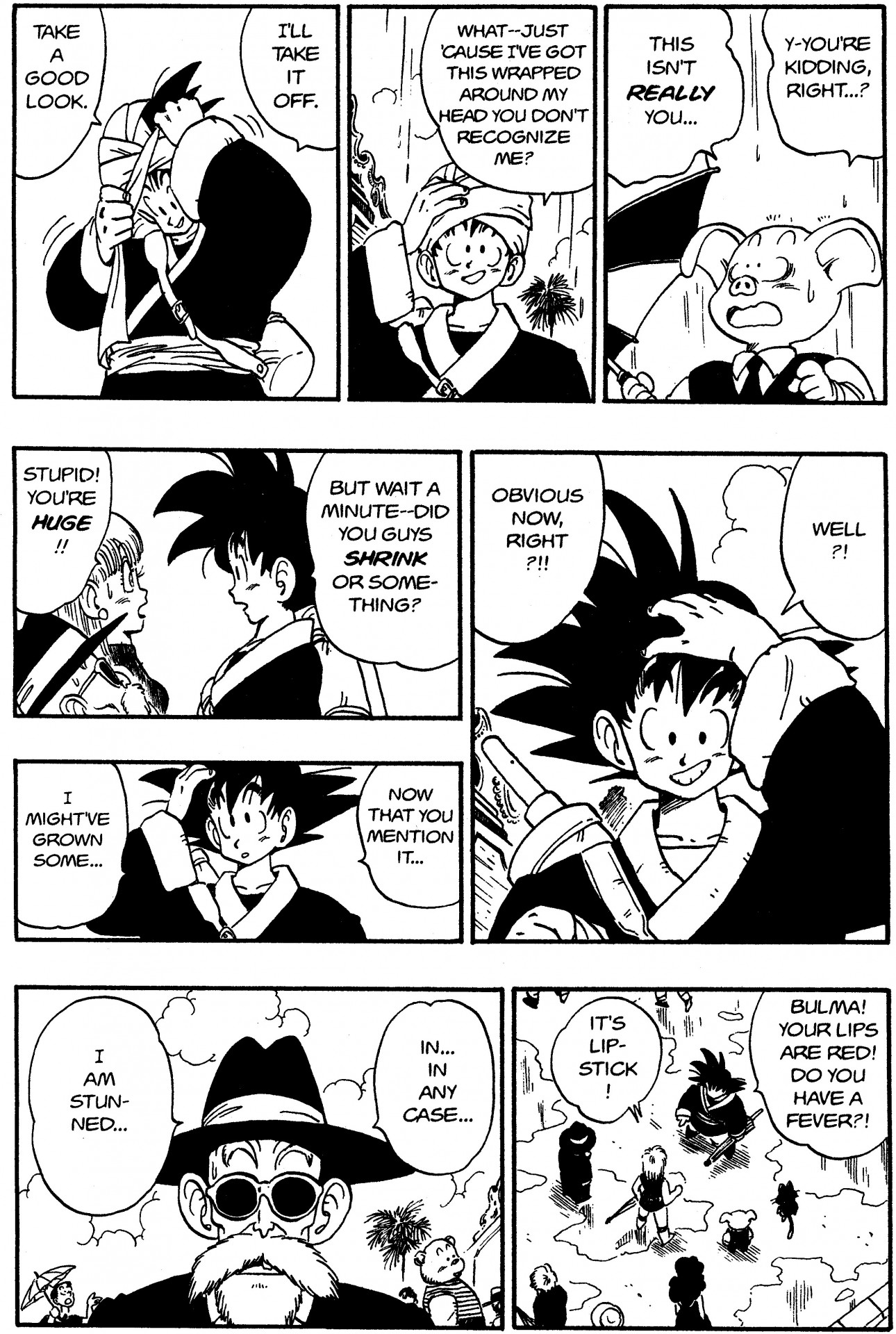
I love singing. The fact that I love music will never change, so as long as people will have me, I want to keep singing. And the thread that keeps me bound to music is the song called Makafushigi Adventure.
That's why I'm going to keep singing that song, with all my heart, for as long as I can.
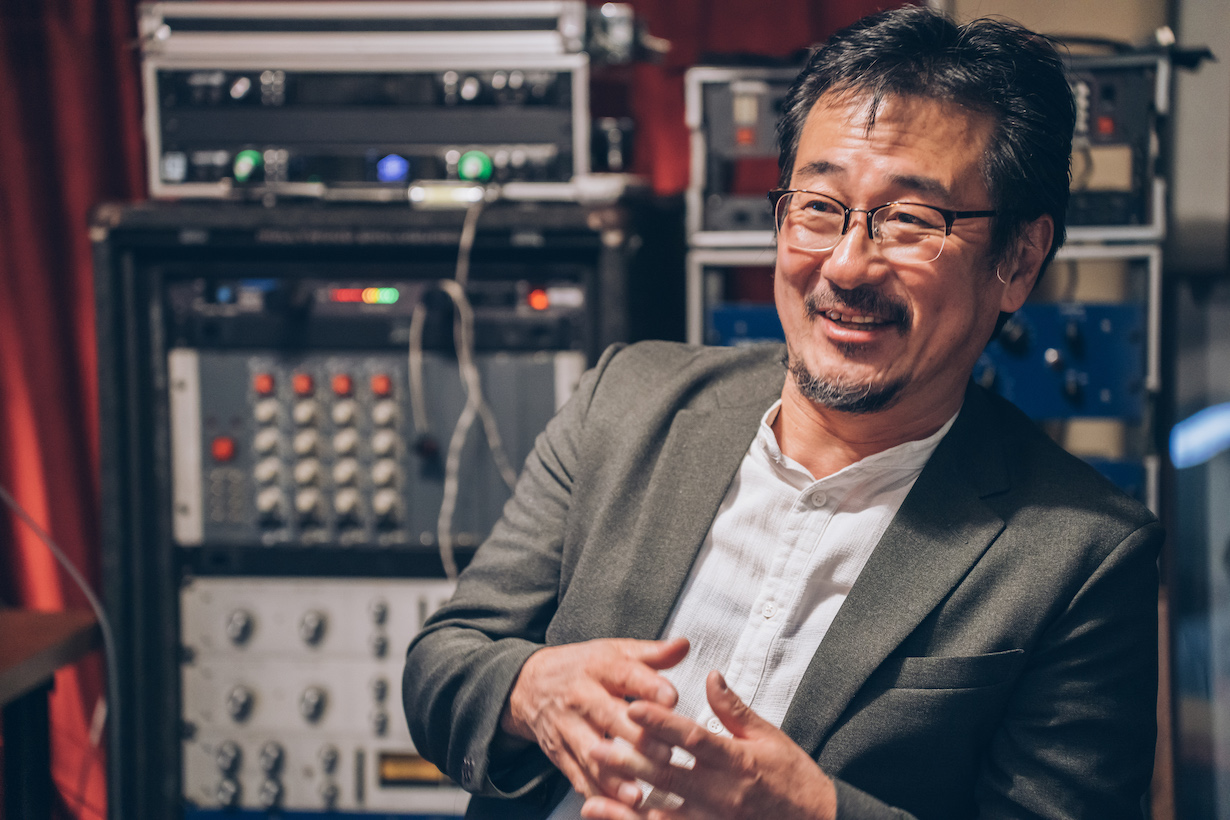
Photography: Makoto Tsuruta
This site includes machine-translated texts. Please be aware that you might find some unusual expressions that are difficult to understand.
Post
Confirm Post
Post the above comment?
Reply
Confirm Reply
Post the above comment?
Are you sure you want to delete this comment?
Report successful
Post Unsuccessful
This user will be muted.
You will be unable to see comments from muted users in the comments area.
*To unmute users, navigate to the "Comments" area on MY PAGE.
Reply
Confirm Reply
Post the above comment?
Edit
Post
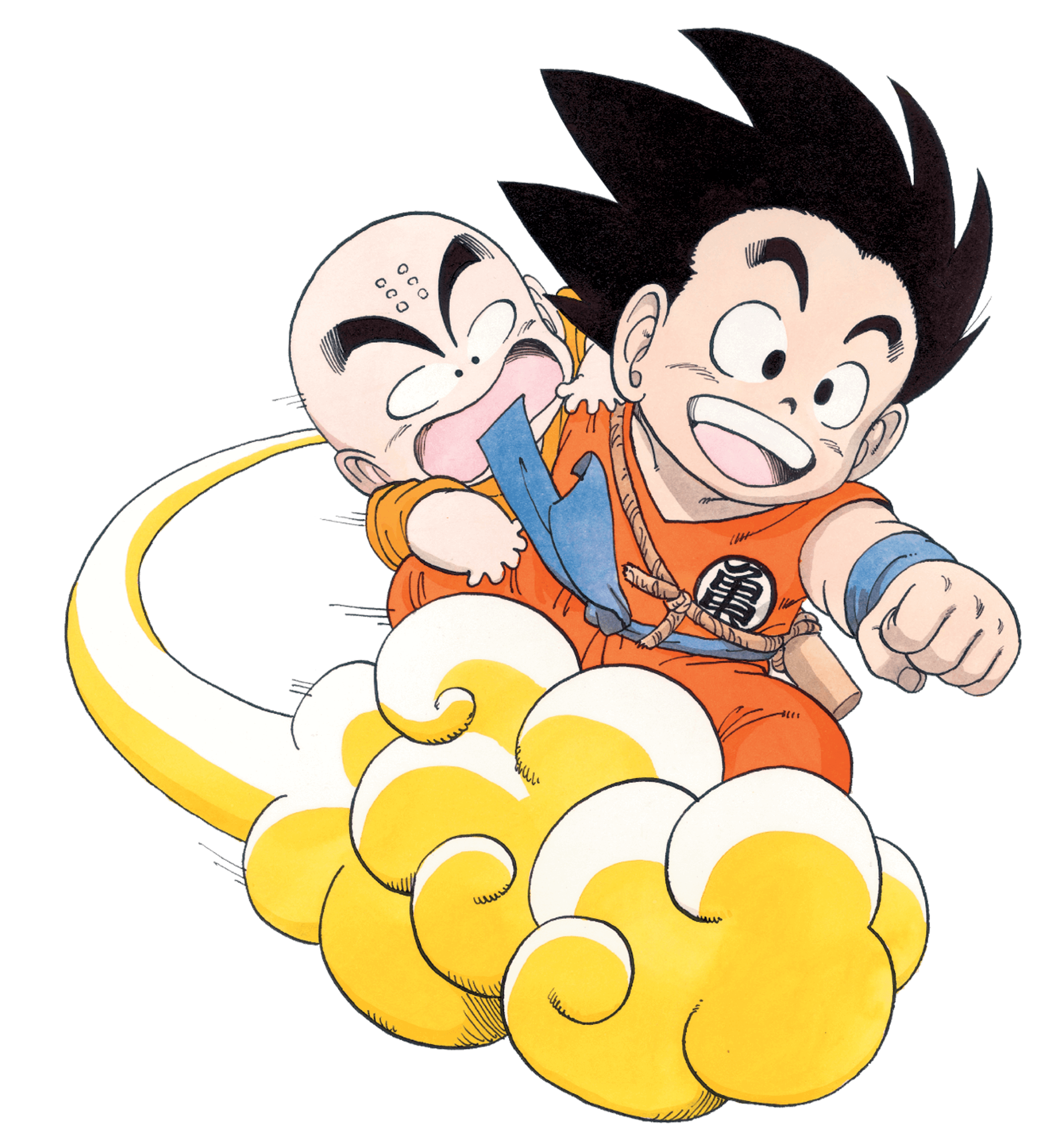

Post
Confirm Post
Post the above comment?
Edit
Post